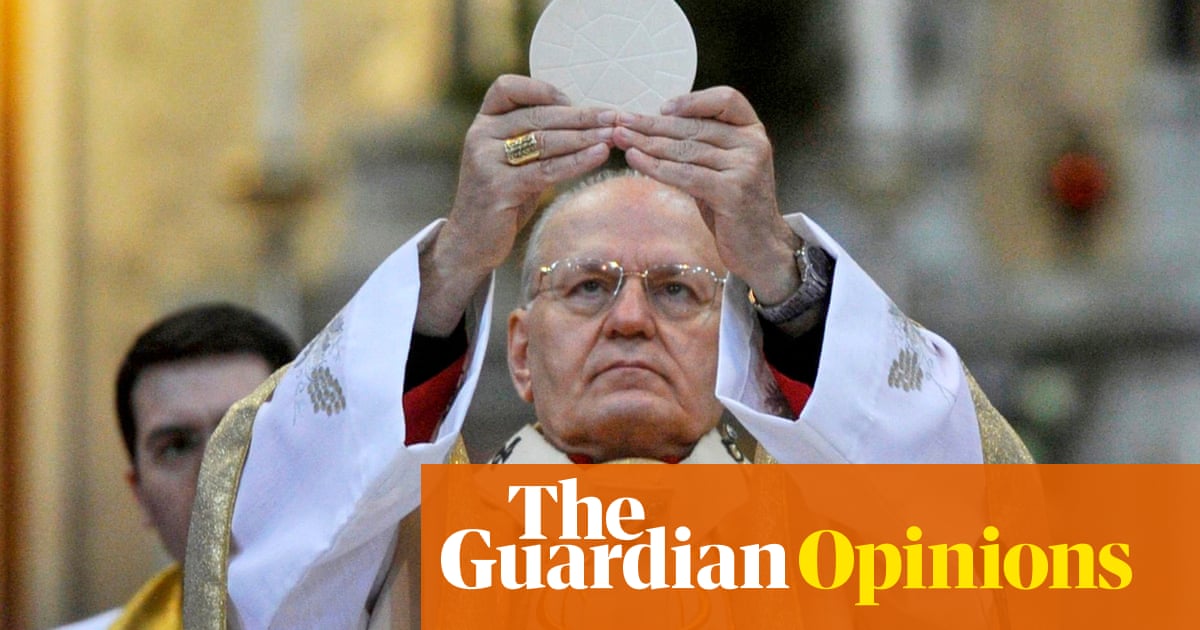Who might be the next pope? The question is famously difficult to answer. But we can be reasonably confident that if the successful contender comes from the traditionalist camp – as opposed to the reformists – then he is likely to be Hungary’s most senior bishop, Péter Erdő.
If you follow Hungarian politics then you will know of Erdő – a highly cultured man, respected for his broad learning well beyond his specialism in church law. His expertise has made him avalued consultantto Vatican bodies, while his sermons and interviews abound with historical and literary references. Yet he’s also a remote figure, lacking the common touch that defined Francis’s papacy; ascetic-looking, he’s rarely pictured smiling.
His links to his country’s far-right Fidesz government should, however, warn us about the risks of his possible election.
Erdő has been archbishop of Esztergom-Budapest and a cardinal since 2003. He first developed an international profile by leading the Council of the Bishops’ Conferences of Europe, the representative body for Europe’s Catholic bishops. Latterly, he’s gained a stronger standing outside Europe, especially among traditionally minded African and American bishops. This builds on his role as rapporteur for the global Synod on the Family (2014-15), convoked byPope Francisto reflect on the church’s pastoral teaching in the light of changing social conditions.
During the synod he resisted moves towards a more inclusive approach to LGBTQ+ and divorced Catholics: “The current tendency to pass off those things which are simply desires, often selfish ones, as true and proper rights … must be avoided,” he told delegatesin a keynote speech.
Vatican-watchers differ on the viability of his candidacy. Conservatives certainly like him. Erdő, however, has been spoken of as a contender before, in 2013, ahead of the conclave that elected Pope Francis. On that occasion he was eliminated early, leaving some commentators sceptical of his present candidacy.
Yet there are important differences between then and now. In February 2013, Erdő was 60, generally reckoned too young for the job. Today, at 72, he’s in the “sweet spot”, able to offer the church a decade or more of stable governance without risking the stasis of a generational papacy such as John Paul II’s (1978-2005). Erdő could also ride a wave of traditionalist pushback against Francis’s reforms – just as Francis did with a progressive reaction to Benedict XVI’s pontificate (2005-2013).
Nevertheless, despite his conservative views, Erdő’s use of cautious and moderate language makes him notably less controversial than two other leading traditionalists, such as Robert Sarah. He can thus position himself as a compromise candidate: “He is conservative but not reactionary, and comes across as both pragmatic and diplomatic,” notes the Hungarian Catholic journalist Zoltán Laky.
It would, however, be a mistake to be swayed by Erdő‘s apparent moderation. Although not as intimate with Hungary’s far-right premier, Viktor Orbán, as some other bishops, Erdő has nonetheless cultivated a close partnership with the governing Fidesz party since 2010.Generous subsidiesfor the church have been a plank of Fidesz’s policy.
One (now-ex) cleric from Erdő’s diocese who became known for expressing dissenting views, András Hodász,claimed that“I was confronted from above” and told “not to say such things because the church would not get [financial] support”. In September 2023, Erdő was seen by many to cross a lineby attendingthe annual Kötcse picnic, a high-profile but exclusive event for Fidesz insiders during which Orbán gives a confidential briefing about the party’s policy direction in the coming year.
During the migration crisis in the mid-2010s, Erdő declined to criticise Fidesz’s hate campaign against migrants. In 2017, heabruptly terminateda live TV interview when asked if the government’s vilification of asylum-seekers was compatible with Catholic teaching on compassion for such people. He has also been mute in the face of thede factocriminalisation of homelessnessin Hungary in 2018, and the introduction of Russian-style legislationstigmatising the LGBTQ+community in 2021.
Potentially more troubling than Erdő’s silences about public issues are signs of past mishandling of allegations of child sexual abuse by clergy, most particularly the case of abuse survivor Attila Pető. Pető’s complaint led to the unfrocking of a priest who had abused dozens of children. His demands for an apology from the church were, however, met by legal action from diocesan officials. Last month, Snap (Survivors Network of Those Abused by Priests)lodged a complaintwith the Vatican alleging that Erdő’s conduct in the matter had “harmed the vulnerable and caused scandal” in breach of the church’s own legal code.
Cardinal Erdő’s office did not reply to an approach for comment for this article. Previously, ina 2021 interviewwith Válasz Online,he distanced himself from the legal action against Pető, saying that it was a private matter for the diocesan officials concerned. “We even owe this man a debt of gratitude,” he added. In March 2025, a diocesan spokesperson responded to the Snap complaintby tellingthe Hungarian outlet Telexthat the diocese believed its handling of the matter to have been timely and appropriate.
Erdő’s possible ascent to the papal throne would be bad news for LGBTQ+ Catholics, and those who have remarried after divorce. It should, however, also worry abuse survivors and anyone concerned with the integrity of Christianity’s presence in public life.
The church has a duty to challenge those in power when they exceed their proper authority or weaponise appeals to “Christian identity” for political ends. This is a task in which, as Archbishop of Esztergom-Budapest, Péter Erdő has failed miserably: there’s little reason to think that as pope he’d do any better.
Alex Faludy is a British-Hungarian freelance journalist based in Budapest, specialising in religious affairs
